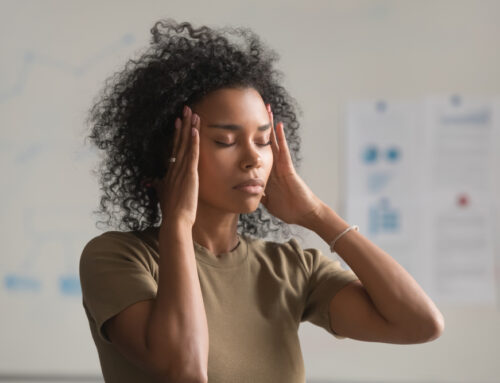Understanding Sleep Problems and Natural Solutions
Struggling with sleep? Natural ways to help you sleep can vary widely. Many adults find their sleep duration decreases with age — from an average of seven hours in early adulthood to about six hours for those over 80. Natural sleep aids and remedies, such as establishing better sleep habits or using herbal sleep aids, may offer relief without the need for prescription sleep medications. Addressing sleep problems early with natural treatment for sleeplessness can prevent long-term sleep disorders.
Disrupted sleep may involve:
- Difficulty falling asleep
- Difficulty staying asleep
- Frequent waking
- Consistently getting less than 6 hours per night
- Non-restorative sleep (waking tired)
Naturopathic medicine has several tools used to support sleep, but the most effective types will differ depending on the individual. A naturopathic doctor will consider the following factors when addressing sleep disturbance:
- Lifestyle & Sleep Hygiene
- Underlying Medical Conditions
- Nutrition
- Supplementation
- Acupuncture
Lifestyle & Sleep Hygiene for Improving Sleep Quality
Maintaining a physically active lifestyle is a cornerstone of good sleep hygiene. Exercise not only helps you fall asleep faster but also improves the overall quality of your sleep. However, it’s just as important to create the right environment for sleep. As bedtime approaches, start by dimming your lights a few hours beforehand, which helps signal to your brain that it’s time to wind down. Avoid screens, as their blue light can disrupt sleep signals. Ensure that your sleeping environment is conducive to rest: it should be cool, quiet, and completely dark, optimized for relaxation. Furthermore, following a consistent bedtime, preferably before midnight and no later than 11 PM, aligns with your body’s natural sleep-wake cycle, facilitating deeper, more restorative sleep.
Underlying Medical Conditions That Could Affect Your Sleep
If you are having sleep disturbance or low energy, it is important to check in with your primary care provider for a routine physical exam and bloodwork. There are a few conditions that can affect sleep; blood sugar imbalance or diabetes, digestive disturbance, heart disease, hormone changes, chronic pain, hyperthyroid, anemia, and stress are just some of the conditions that can impact sleep. A naturopathic doctor will screen for the causes of sleep disturbance and treat it holistically.
Nutrition
Eating well and at the right time is also an important healthy sleep habit. It’s important to manage what you eat and when you eat. Eating a heavy meal too close to bedtime can disrupt your sleep due to a drop in blood sugar levels later at night. Ideally, finish your last meal at least 2-3 hours before sleeping. Aim to space your meals throughout the day, which helps in efficient digestion and avoids the discomfort of lying down with a full stomach. A naturopathic doctor can develop a dietary plan tailored to your sleep needs, often recommending a low-sugar or low-glycemic diet to stabilize energy levels and improve sleep hygiene.
Supplementation to Improve Sleep Naturally
Many natural health products help with sleep. The best supplement or herb for you depends on your unique history and biochemistry. For example, both melatonin and 5-HTP may be used in helping people fall asleep. How do you choose? Melatonin may be most helpful for someone with hormone changes, frequent travel, or shift work, while 5-HTP may be most supportive of someone under stress or who suffers from digestive upset.
Another example: both iron and chromium may be helpful for people experiencing frequent waking. How do you choose? Iron is specific to people with iron deficiency, while chromium is indicated for people with elevated blood sugar levels.
A naturopathic doctor can review the numerous sleep aids and help you choose the right support based on your medical history.
Acupuncture
In Ontario, many licensed naturopathic doctors also specialize in Traditional Chinese Medicine and acupuncture, which are effective in promoting restful sleep. Acupuncture treatments encourage relaxation by balancing the body’s energies and stimulating endorphin release, which can help regulate sleep patterns and improve sleep quality. Discuss with your naturopath the potential benefits of acupuncture to improve your sleep naturally.
Improve Sleep with Naturopathic Medicine
At Innate Wellness, our approach to combat sleep issues like insomnia involves naturopathic treatments, tailored to your needs. Our team of naturopathic doctors and specialists in various fields, design personalized plans that may include herbal remedies and behavioural therapy for insomnia. To find out more about how we can help you get better sleep, visit our website, contact us, or book an appointment with our specialists. Exploring natural ways to help you sleep with our experts can significantly improve your sleep quality and daily energy.






